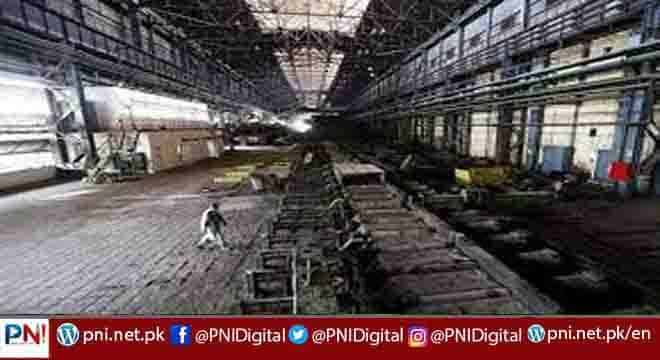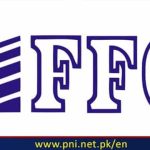Islamabad, March 29, 2022 (Online): A meeting of the Senate Standing Committee on Industries and Production was held under the chairmanship of Senator Faisal Sabzwari at Parliament House today.
The Ministry and Pakistan Steel officials gave a detailed briefing to the committee on the question posed by Senator Mushtaq Ahmed in the Senate session regarding the audited accounts of Pakistan Steel Mills Corporation (Pvt) Limited. The total losses and liabilities of Pakistan Steel have increased by Rs. 67.167 billion from June 30 to December 2020.
Officials informed that Pakistan Steel Mill started production in 1985.
The mill made a profit of Rs 9.54 billion. Pakistan Steel Mills has been running a deficit since 2008 due to global recession and other factors.
The company incurred a record loss of Rs 26.45 billion in 2008. From 2008 to 2014, Pakistan Steel Mills received about Rs. 59 billion as bailout but the company could not be revived.
Pakistan Steel Mills has incurred a total loss and liability of Rs 67.1 billion from June 30, 2020 to December 31, 2020. Pakistan Steel officials said that so far about 5,000 employees have been laid off through golden handshakes. And after receiving the funds from the Ministry of Finance, the affairs of more employees will also be looked into. The Chairman Committee adjourned further discussion on the matter till the next meeting due to the absence of Senator Mushtaq Ahmed.
The meeting discussed in detail the status of declaring mining as a formal industry by the Government of Pakistan. The mining sector is a provincial matter after the 18th Amendment, ministry officials said. As far as the federation is concerned, it is looked after by the Ministry of Petroleum.
“We have written a letter to the Ministry of Petroleum. As soon as the Ministry approves it, a notification will be issued to declare mining as an industry. The chairman of the committee asked what are the benefits of declaring mining as a separate industry. Officials informed that the industry’s status makes it easier to get loans from banks and other tax matters. Which will make further progress in this field possible?
Public petition filed for setting up of PIDC Regional Office in Quetta, Balochistan was discussed. The Secretary, Ministry of Industries and Production said that there was no need to set up a regional office of PIDC in Quetta. The secretary of the ministry further said that there was neither plan of PIDC nor any projects in Balochistan and therefore there was no need to set up an office in Quetta.
Details of the financial implications of the Standing Committee’s recommendations on steel prices were also considered in detail. The Secretary, Ministry of Industries and Production informed the committee that the services of a private firm would be sought for determining the exact production cost of steel and other commodities in Pakistan so that the prices could be fixed accurately. Senator Muhammad Abdul Qadir asked as to why the price of steel is rising in Pakistan.
And if we import the same steel, what effect will it have on prices? Officials of the Engineering Development Board said that work is underway in this regard and matters will be sorted out in collaboration with the representatives of the concerned industries.
Representatives of the Pakistan Association of Large Steel Producers informed the committee that about 400 companies are currently making steel in Pakistan. And most of the steel in Pakistan is made from imported scrap. As the price of scrap increases in the global market, so does the cost of production, which in turn causes prices to rise.
Senator Saifullah Khan Niazi said that we are trying to make cheap steel available to the people. There are other industries connected with steel industry. And price increases affect everyone. The committee members sought all the details at the next meeting of the committee for accurate determination of steel production cost and prices.
The committee members also considered in detail the production of vehicles and the issues faced in this regard. The committee was informed that 65% of the parts for vehicles manufactured in Pakistan are imported. Senator Abdul Qadir inquired that despite the fact that the vehicles are expensive, the vehicles manufactured in Pakistan are not up to the standard.
EDB CEO said that under the new policy, companies are required to make arrangements to manufacture vehicle parts locally over time, So that vehicles made in Pakistan can be exported abroad aswell.
The committee meeting was attended by Senators Falak Naz, Saifullah Sarwar Khan Nyazee, Mohammad Abdul Qadir, Faisal Saleem Rehman, Hidayatullah, Ata-ur-Rehman, Shaheen Khalid Butt and officials of the concerned ministry.
Follow the PNI Facebook page for the latest news and updates.









